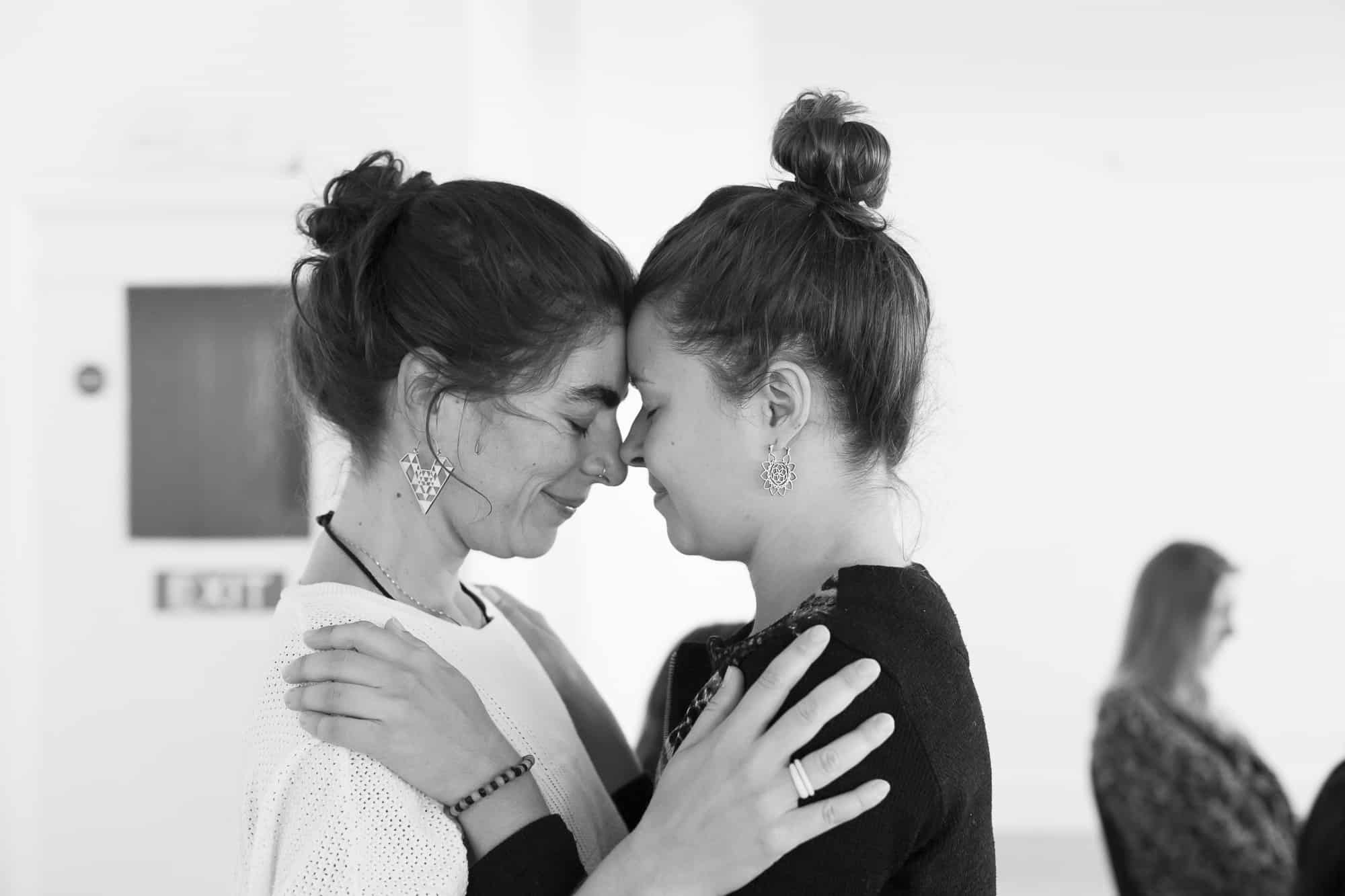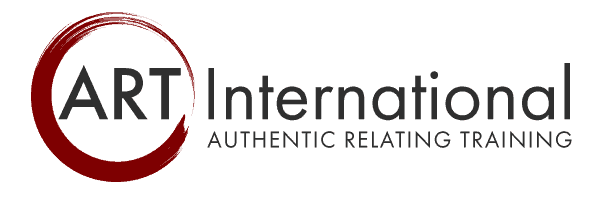On a cold February morning in the high mountains of Colorado, my assistant course leaders and I walked up to the towering, razor-wire-infested gates of the Buena Vista Correctional Facility. We passed through the metal detector and were escorted down twisting concrete hallways to the facility’s classroom. Inside, a window revealed snow-capped mountain tops in the distance, bordered by prison fences in the foreground. Snack machines hummed along white concrete walls, and security cameras peered down on us from the ceiling corners. A few minutes later, eighteen men filed into the classroom in their dark green prison scrubs and took their seats in hard plastic chairs, arranged in a circle.
We didn’t know it at the time, but among the men were the leaders of powerful rival gangs known for their brutal treatment of each other. We learned later that an increasingly aggressive feud had been brewing between them in the weeks prior to the course, and an all-out war was widely expected to break out at any moment. We began the course mostly in silence as I gently guided the men into what we call Connect to Self, a simple practice designed to notice and welcome one’s own experience and become aware of what is happening in one’s body, mind, and emotions in the present moment.
My team and I were there to deliver a two-day training course in the practice of authentic relating on behalf of the nonprofit organization I had co-founded to bring this extraordinary and life-changing practice to inmates. Word had already spread about our program and the transformational impact it had been having on the men at this and other facilities throughout the state, and the men were feeling a mixture of eagerness, skepticism, and resistance.
The sun arced toward to the high peaks in the distance as I guided the men through a series of exercises. They softened and started to reveal more of the authentic, vulnerable self living underneath layers of masks and protective mechanisms built over years of living in constantly challenging and unpredictable conditions. I had come to savor these moments, when the hardened shells the men had built around themselves started to dissolve and reveal the love, hope, and care underneath.
We completed the two-day course and sent the eighteen inmates off with a whole new array of possibilities to be explored in life and relationship, beaming and cracked open. My team and I drove home together remembering all the sweet moments from the prior two days, our eyes still moist from the tears we had shed, knowing we had experienced something rare, special, and beautiful together with the men we left behind on the other side of those layers of concrete walls and concertina wire.
About two months later, we received a handwritten letter from one of the inmates who had been in the course with us. He wrote to let us know that right after the course, the gang leaders agreed to meet together, and at that meeting they used the tools and skills we had taught them to listen to each other, become genuinely curious about each other, create a shared context for negotiation and resolution, and ultimately work out their differences and avert the bloody war that had been sure to come.
“You literally saved people’s lives,” he wrote.
These words stopped me dead in my tracks. Authentic relating saves lives? I let myself contemplate that for a long time. Certainly I had seen many times the impact this practice had been having on people’s quality of life and relationships, but it never occurred to me that its impact could even include saving lives. Yet as I thought about it, it made more and more sense, and on wider and wider scale. As I began researching the health implications of social isolation, I came to see human connection as a vital ingredient for basic health; without it, we languish, suffer, and deteriorate – not just emotionally, but physically as well.
I found research conducted at the National Institute of Health that linked social isolation and loneliness to “higher risks for a variety of physical and mental conditions: high blood pressure, heart disease, obesity, a weakened immune system, anxiety, depression, cognitive decline, Alzheimer’s disease, and even death.”
Dr John Cacioppo, PhD, a former director of the Center for Cognitive and Social Neuroscience at the University of Chicago, oversaw groundbreaking research to produce his Evolutionary Theory of Loneliness, which concluded that “loneliness automatically triggers a set of related behavioral and biological processes that contribute to the association between loneliness and premature death in people of all ages.”
Another pioneering researcher in the field of loneliness, Dr Steve Cole, PhD, director of the Social Genomics Core Laboratory at UCLA, even found that loneliness can induce inflammation in the cells of our immune systems, making us more vulnerable to some infectious diseases, a particularly relevant finding as the world recovers from the COVID-19 outbreak of 2020.
I thought to myself, why doesn’t everyone have easy and early access to the resources they need to enjoy healthy, vibrant, nourishing, uplifting relationships? No one should have to suffer from depression, chronic anxiety, addiction, loneliness or other symptoms that arise from the lack of human connection in life, especially when the skills needed to unlock and create nourishing relationships are now so simple to teach and learn.
Why do we have schools around the world that teach people the skills they need to build rockets, heal broken bones, drive cars, cook meals, or even venture into outer space, but hardly any schools that teach people how to be skillful in relationships? We leave it to parents, peers, and trial and error to be the often poorly equipped teachers of an aspect of our lives that affects all of us, every day, from work to home and everywhere in between. We stumble in the unknown darkness, hurting ourselves and others, through no fault of our own, destined to perpetuate the cycle begun by our own mistakes by teaching them to others.
Ever since first encountering authentic relating many years ago during a very challenging period of my life, I believed beyond a doubt that the practice could be taught to and learned by absolutely anyone no matter their background, beliefs, or values, to give them the skills to create and participate in strong, healthy, intimate relationships. At that time, it had only been available to people firmly entrenched in the personal development communities centered around places like Boulder and San Francisco, yet something in me knew that it could and would grow far beyond these small islands and finally make the possibility of skillful relationship available to everyone.
After my initial training at the Integral Center in Boulder – at the time a major hub for authentic relating, I dedicated myself to learning everything I could about human connection from the best teachers in the field, living it in my life and all my relationships, and gradually understanding how to best convey it to a mainstream audience.
I wanted to test the theory that anyone could learn the tools and skills of authentic relating and experience a life-changing shift in the quality of all their relationships, so I joined a volunteer program that matched mentors with inmates at the Boulder County Jail, near where I lived. I spent two years visiting the jail every week, connecting with my inmate mentees and sharing with them a steady stream of authentic relating resources.
Week after week, I could see the transformation happening in the men right before my eyes, both in the jail and after their release. Their relationships with fellow inmates and family members alike deepened and became more enriching and intimate. Their sense of peace, self-acceptance, and dignity grew, and their ability to reveal their authentic experience to me and others allowed them to be ever more deeply seen and known, and to experience real intimacy for perhaps the first time in their lives. As I came to see and know these men over time, I came to love them, and be loved by them, and I knew something vitally important was happening with much wider implications than our weekly meetings at the Boulder County Jail.
Over time, the culture at the jail noticeably shifted, and the administrators allowed us to deliver a full two-day authentic relating course to a group of inmates. Something magical happened for all of us in that small, poorly-lit room at the Boulder County Jail over those two days – the raw honesty, vulnerability, and intimacy that held us in that room couldn’t be contained by even the thickest walls of concrete. After that course, we got approved to deliver our training program throughout the Colorado correctional facility network, which led to the course I wrote about earlier.
Through our company, Authentic Relating Training International, our sister nonprofit organization Authentic Relating International, and many other schools and organizations around the world, authentic relating is reaching more people than ever, introducing them to the most potent, innovative, easy-to-learn and easy-to-apply skills and tools for skillful relationship ever developed. It can be used at home, in the office, out with friends, on first dates, with strangers, and anywhere humans meet each other and interact to create exciting, engaging, enlivening and intimate connections and conversations.
And it even saves lives. Please join us in the circle sometime, so we can connect and explore this beautiful practice together, so we can teach each other and learn from each other, so we can heal ourselves and each other, and so we can learn to heal and transform relationships everywhere.
With love and in connection,
Ryel Kestano, ART Co-founder & Senior Course Leader



